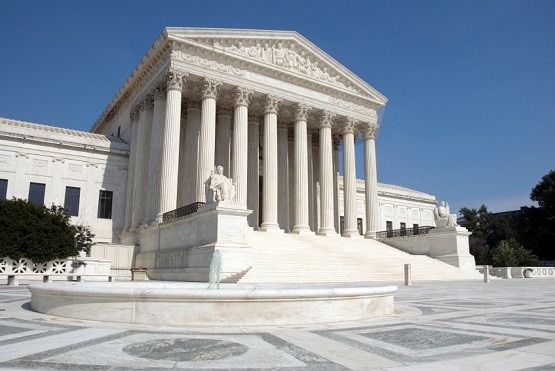Alliance Defending Freedom filed a friend-of-the-court brief Monday with the U.S. Supreme Court that urges it to take up a challenge to a Maine law that government officials have used to silence pro-life speakers outside of abortion facilities.
The “noise provision” of the Maine Civil Rights Act purports to prohibit “intentionally making noise that can be heard within a building” if the “intent” of the noise is to “interfere with the…effective delivery of [health] services within the building,” such as abortions. Maine officials cited the law as the basis for stopping Pastor Andrew March from engaging in non-amplified pro-life speech outside of a Planned Parenthood building.
As the ADF brief in March v. Mills notes, the law is unconstitutional, in part because it would not apply to a pro-abortion speaker outside of a Planned Parenthood building because his speech doesn’t have the “intent” to oppose abortion but to support abortion.
“It makes no sense for the government to say that only ‘noise’ with a particular viewpoint is a problem,” said ADF Senior Counsel Kevin Theriot. “Maine’s law is unconstitutional on its face because it allows officials to censor speech based on its point of view rather than any objective criteria. The U.S. Supreme Court has found—as recently as 2015—that laws cannot preclude speech on that basis, and we hope the court will reaffirm that principle here.”
Follow LifeNews.com on Instagram for pro-life pictures and the latest pro-life news.
In the 2015 ADF case Reed v. Town of Gilbert, the U.S. Supreme Court unanimously found that the government cannot judge speech based on its “function or purpose,” as the Maine law does. The ADF brief explains that, in upholding Maine’s law, the U.S. Court of Appeals for the 1st Circuit “avoided this aspect of Reed’s holding by concocting a meaningless and nonsensical distinction between the purpose of a speaker and the purpose of his message.” That distinction “creates a significant loophole” in what the Supreme Court clearly meant in the Reed decision, and “that could allow a whole host of content-based speech restrictions to escape strict scrutiny.”
The brief adds that the 1st Circuit’s decision “poses a particularly serious threat to First Amendment rights because of the context from which it arose. Other states and localities will look to the Noise Provision as a blueprint for silencing disfavored speech outside of abortion clinics and elsewhere—unless this Court reverses. Core First Amendment rights will be lost.”
Robert M. McKenna and David W.A. Spencer of Orrick, Herrington & Sutcliffe LLP represent ADF on the brief.








